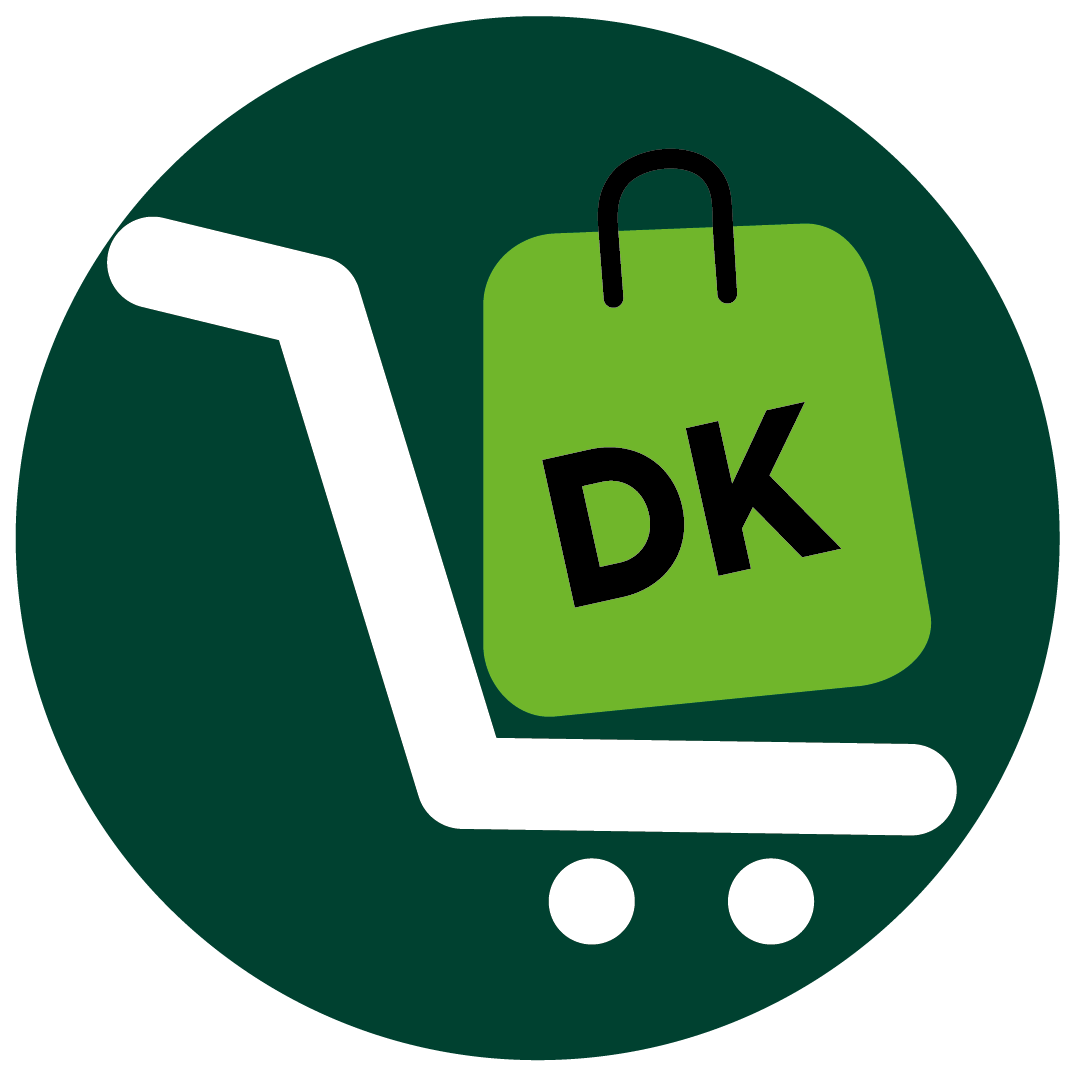Do you want to start a profitable ecommerce business but don’t know how to begin? If yes, this is your lucky day! Stick to this article till the end, and don’t go anywhere.
Building a lucrative online store goes beyond creating a website, choosing a brand name, and writing captivating product descriptions and listings—and hoping that shoppers, all of a sudden, will start pouring in from the Internet.
It takes more—way more!
This article sheds light on everything you need to know to start a money-spinning ecommerce business—even if you’re a rookie ecommerce entrepreneur.
To start an ecommerce business from A to Z:
- Understand the Concept of Ecommerce Business
- Choose an Ecommerce Business Model
- Pick a Suitable Niche
- Choose Appropriate Products
- Get a Unique Business Name
- Register Your Ecommerce Business
- Craft a Compelling Marketing and Promotion Strategy
- Choose an Ecommerce Platform
- Create Your Online Store
- Evaluate Your Store
Ready? Let’s jump right in!
1. Understand the Concept of Ecommerce Business
To launch a cash-cow ecommerce business, understand what ecommerce is. Essentially, you buy and sell goods and services over the internet, and your customers can be consumers, businesses, nonprofits and governmental agencies.
The goal is to make money, right? So it doesn’t really matter who your shoppers are as long as you have the right product, draft the right communication and don’t run afoul of any regulations—both platform- and government-related.
Bottom line: Get the ball rolling and tweak as needed.
2. Choose an Ecommerce Business Model
Are you a rookie who’s dying to start a money-making ecommerce business? If you answer yes—and you should answer yes—pick the right ecommerce business model.
In other words, find out the kind of business you want to operate, identify your monetization plan, zero in on a target market, and estimate your costs.
Pay attention to these four business models:
Print-on-demand: You sell customizable products through a third-party company that produces and distributes the product.
Membership-based: Your customers pay a monthly, quarterly or annual fee to get access to your products—as long as their membership lasts.
Dropshipping: A customer orders and pays for a product through your store, and you re-route the order to a supplier, who in turn ships the products directly to your customer. (You pay the supplier specific discounted rates that you and the vendor have previously negotiated.)
Subscriptions: Your sell products or services to customers who sign up for a subscription plan. You deliver such products or services to customers at intervals.
Choose whatever plan works for you, depending on your budget and business goals.
3. Pick a Suitable Niche
To launch a successful ecommerce business, carefully identify the niche you go after. Don’t pick an overly competitive niche, especially those that “big players” already dominate.
Chances are, you’ll struggle to survive. Remember, you’re still a newbie.
But also be picky about less competitive niches—they tend to have low-profit margins or shipping issues.
Identify successful companies who already have years of experience in the business and pick one or two niches that are popular in their niche catalogs. Use tools such as Google Trends and Ubersuggest’s Keyword Tool to zero in on your niche.
Narrow down your search until you identify a unique spot in the market.
4. Choose Appropriate Products
To begin a winning ecommerce business from scratch, choose suitable products to sell—products within your niche.
Use various business categories—digital products, physical products, online services and online courses—to guide your product choices. It’s all about trials and errors, right?
The cool thing is that you can choose more than one category, depending on your business model and niche. Totally up to you!
While choosing suitable products, pay attention to current and upcoming trends, and understand the size of your target market.
Also, ascertain the demand statistics for your potential products and make sure these stats are rosy and indicate that your products are profitable to sell. Tools like Google Trends can come in handy.
5. Get a Unique Business Name
To start a lucrative online store as a novice, choose a compelling business name. The whole idea is to stamp a unique identity on your brand. Use tools like Business Name Generator for inspiration.
Also, use SEO tools like Semrush to identify customers’ most searched terms within your niche in order to coin your perfect brand name.
Create a name that sticks. Avoid lengthy names—if possible, keep them below 10 characters. Don’t choose a name similar to your competitors’—that’s a death trap. Be unique as much as possible.
Make sure your proposed business name is available for a domain and hosting.
Speaking of domain and hosting, don’t use hyphens when coining your business name. Also, choose a domain name that ends with .com or .org—they tend to be more reliable and memorable.
6. Register Your Ecommerce Business
To establish a lucrative ecommerce business from A to Z, register your business so that it gets legal protection and tax benefits.
Get your business licenses and permits, including your Employer Identification Number (EIN).
Visit the U.S. Small Business Administration’s website to get a comprehensive list of requirements.
7. Choose a Marketing and Promotion Strategy
To kick off a lucrative ecommerce business as a greenhorn, develop a unique marketing strategy and promote your ecommerce business. With marketing and promotion, you get the word out to your prospective and existing customers, increasing brand awareness and sales in the process.
Pay attention to these marketing strategies:
- Maximize the power of search engine optimization (SEO), so your store can rank high when people search for keywords related to what you sell.
- Use email marketing to easily reach customers through emails without necessarily running ads.
- Use Google ads to push your products to the top search results.
- Create an affiliate program and incentivize content creators (YouTubers, influencers, bloggers, etc.) to sign up. Give them a commission for every sale they make on your products.
- Exploit the power of social media.
- a reliable influencer within your niche to promote your ecommerce business to his or her audience.
Choose a marketing strategy that channels your business to the right audience at the right time and at the right place.
8. Choose an Ecommerce Platform
To start a revenue-generating ecommerce business as a novice, choose a platform you can build your store on. Pick a platform that allows you to customize your listings and integrate your products into your store.
Well-known platforms include Shopify, Amazon, BigCommerce, WooCommerce, Wix and Square—still, the right platform for you depends on your niche, needs and target audience.
Also consider your budget, the features you need to run your business, the technical know-how involved, the flexibility in using the platform, and the kinds of products you sell on the platform.
9. Create Your Online Store
To kick-start a lucrative ecommerce business as a beginner, create an online store on a platform that comes with customizable features, allows different payment gateways, and has a good loading speed.
Make sure the platform matches your business model and is SEO friendly.
Speaking of SEO, make sure your store is responsively designed to fit all devices—especially mobile devices where most shoppers nowadays make purchases.
To create an online store, register on any of these platforms: Shopify, Amazon, BigCommerce, WooCommerce, Wix or Square. Again, the right platform depends on your niche, needs and target audience.
Remember to fill in your email address, password, unique business name, real name, your address and phone number as you complete the signup process for any of these ecommerce platforms.
Pay attention to aesthetics. You want your store to be visually pleasing, right? Get a fitting color scheme, easy-to-read font style and size, a matching theme that appeals, and a nice color contrast against your store’s background.
Or would you rather have visitors leave your store at first glance?
Your store’s organization also plays a crucial role as you create your online store.
Ensure you organize your products properly. Create a hierarchy for your product listings. Group them into categories so that visitors can easily navigate through your products.
10. Evaluate Your Store
To start a cash-cow ecommerce business from scratch, evaluate your store.
First impression matters right? Then make it matter.
Make sure everything within your store—checkout process, order processing, inventory, email notifications and taxes—is working properly before going live.
Ensure your payment gateways, your social media links and contact form are working properly. You wouldn’t want to have a bad customer experience from the onset.
Don’t forget to place at least one test order as you evaluate your store. Initiate a simulated test transaction—depending on the platform you choose—to evaluate your payment configuration.
Recap
To start a profitable ecommerce business, understand the concept of ecommerce business and choose a business model that works for you.
Pick a suitable niche, appropriate products and a unique business name. Register your ecommerce business, choose a marketing strategy and promote your store.
Finally, choose an ecommerce platform to build your online store and test your store before going live.














